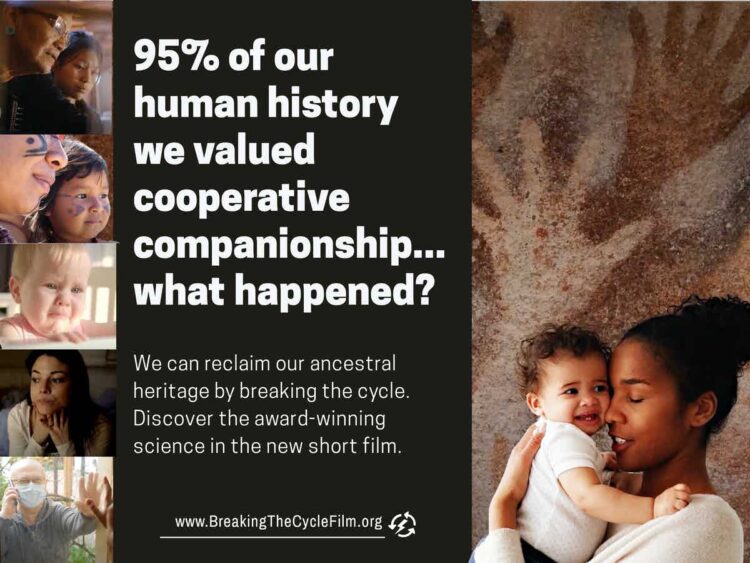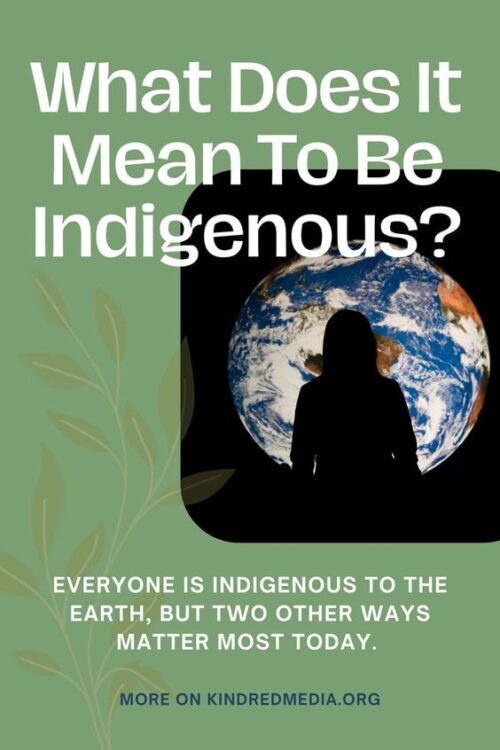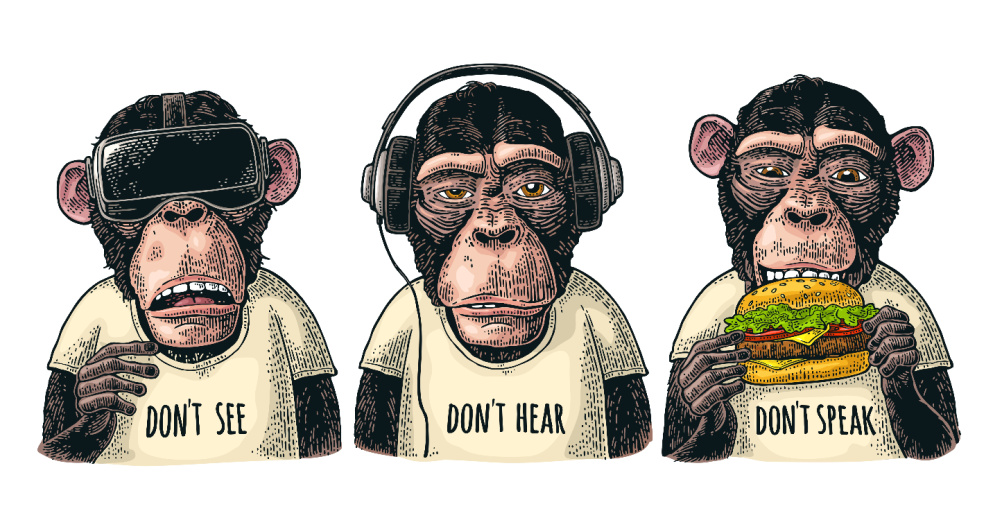Western World Moral Development
Contrasts with Indigenous Morality
When I started out as a middle-school Spanish teacher at a prep school, I attempted to organize democratic climates in my classes. We discussed what rules students preferred. I negotiated within the bounds available. This was a social contract orientation, Stage 5 of Lawrence Kohlberg’s moral judgment scheme. My knowledge of Kohlberg’s theory came later in graduate school (I had not learned of Kohlberg’s theory in college), but I had just come from working with adults who appreciate a collaborative approach most of the time (of course, sometimes you just want the expert to decide what is best based on their experience). Among eighth grade students, this Stage 5 social contract approach worked for some students, the girls primarily (remember that boys mature more slowly). A lot of the boys thought it was a green light to do whatever they wanted, no holds barred, thinking that the rules would shift with their preferences of the moment. It’s interesting to note now how I adjusted my reasoning following Kohlberg’s stage sequence, in reverse order.

I shifted my reasoning to Stage 4, law and order: “Those are the rules.” That argument convinced some additional others to go along. But not all. For them, I then used Stage 3 reasoning, “I care about you and want to build a trusting relationship. Follow the rules for me, to keep my trust.” That worked for most of the rest. But there was still one holdout—a very smart but angry boy. So I shifted to Stage 2 for him: “If you act cooperatively, you can assist me as a teaching assistant.” That worked for a few weeks. But then he acted out. So I was forced to use Stage 1, authoritarianism and threat of punishment: “If you break the rules, you go to the principal’s office.” Being dysregulated, he still could not behave and eventually went to the principal’s office.
Kolberg’s theory contends that people move step by step through the stages of expressible moral reasoning as they mature. This progression turns out to be highly correlated with amount of education.
Neo-Kohlbergian theory, which I helped develop early in my academic career, describes Kohlberg’s reasoning stages as types of thinking that people use, rather than stages of moral (judgment) that people develop in sequence. With maturation and more education, one typically uses more of the higher stages, 3 and 4, then 5, though earlier types of thinking sometimes still guide action. Which type of thinking or reasoning one uses is based on goals and situations. For example, if you see a flashing red light in the review mirror when driving, or your GPS signals a speed trap ahead, you slow down, right? Why? Because you don’t want to get punished with a ticket—Stage 1 reasoning.
That is, individuals shift in how much they use a particular type of thinking.
Whereas scores on Kohlberg’s sequential stages were assessed by how well the stage was articulated or verbalized, Neo-Kohlbergian theory relies on tacit (nonconscious) reasoning measured by recognition, not articulation. As Piaget found, children act on understandings before they can articulate them (he was interested in the average age when children achieved articulation, which varied with domain—e.g., conservation of volume, size, number). Similarly, people act on moral understandings without necessarily being able to articulate them.
Stage 1 and Stage 4 often get confused because both are about rules. Stage 4 reasoning has a sense of society and the need for social order. It is primarily concerned with potential social chaos—you follow the rules because “what if everyone didn’t?” On the other hand, Stage 1 is concerned about rules to avoid punishment: It’s all about me.
Stage 2 starts to move beyond concern for personal safety to personal gain through temporary tit-for-tat exchanges with another. There is no interest in maintaining a long-term relationship. Each situation is considered a transaction—”you give me a cookie and I’ll give be good.” To the Stage 2 reasoning mindset, Stage 5 sounds like Stage 2 tit-for-tat even though it is not. So you can get people who use Stage 2 primarily in their lives running for public office because they think running a government, which requires Stage 5 thinking, is all about personal exchanges. For example, Donald Trump seems to exhibit Stage 2 reasoning most of the time.
Stages 1 and 2 are self-centered. Kohlberg described them as preconventional. They are immature ways of thinking. They don’t reflect a sense of society or understanding of how a society stays together.
Kohlberg called Stages 3 and 4 conventional—they are the most common among the populace. Stage 3 reasoning is concerned about maintaining relationships that a person cares about (me and my relationships). Neo-Kohlbergian theory and data from high schoolers on up lump together stages 1-3 as Personal Interest because, like Stages 1 and 2, Stage 3 is not committed to the wider society, which develops with Stage 4 thinking.

Stages 1-4 are found worldwide and develop from an interaction between maturation and experience.
Kohlbergian Stage 5 represents the ability to reason about ‘how should we all get along?’ Research shows that with westernized college and graduate education, and/or especially, diverse social experience, one shifts to using more of Stage 5 thinking.
As it is measured, Stage 5 is detached from one’s personal lived experience. After all, it is rooted in the use of logic from western philosophical thinking applied to socio-political life. More education leads to greater capacities for hypothetical thinking detached from anything one has experienced. Hypothetical reasoning of this sort is what accounts for the rise in IQ scores in the USA over the course of the 20th century, the “Flynn effect.” This is what Flynn himself concluded.
Okay, this is all about western educated people. But how about in our ancestral context, the type of civilization in which humanity spent 99% of its existence, foraging and hunter-gatherer civilization?
Reasoning about hypothetical dilemmas is the kind of thinking hunter-gatherers refuse to do because their knowledge and their actions are based in personal knowledge. If you ask them the classic moral dilemma question about whether Heinz should steal the drug that could save the life of his wife (because the price charged by the inventor is exorbitant), they ask, “Who’s Heinz? I don’t know Heinz. How should I know what Heinz should do?” Westernized schooling teaches students to ignore their lack of personal knowledge and spend most time pondering and creating abstract models. (Models based in ideals and not personal knowledge are called high modernism when applied in society. In city and neighborhood designs and in ecological management, these models fail because they don’t take into account how human beings and animals behave.)
In our ancestral context, preconquest foraging, there is no social Stage 1 reasoning because no one is punished or coerced. Enhancing and maintaining the wellbeing of others is central to community life. We could call it a Stage 3 immersed experience of everyone, including babies, all life long. Stage 4 reasoning, attending to agreed upon rules, may have emerged among adults with the need to shift to planful hunting and gathering rather than opportunistic hunting and gathering, due to climate change and other factors. Stage 2 transactional orientation would only be found in the very young because one learns that one is related to everyone and everything and that one’s actions can harm or help all others. This is an aspect of the Indigenous Worldview.*
Negotiating and holding to agreements (Stage 5) theoretically is not the top of Kohlberg’s sequence. Acting from principles, integrating all the previous types of reasoning, represents Stage 6 thinking. For Westerners, prioritizing human life would be one such principle.
 But for those who act from the Indigenous or Kinship worldview, prioritizing Life overall, not just human lives, would be a priority, inclusive of the community of beings in which one exists (plants, animals, waterways, land). Morality in an Indigenous lifeway is about responsibly respecting the whole ecological community.
But for those who act from the Indigenous or Kinship worldview, prioritizing Life overall, not just human lives, would be a priority, inclusive of the community of beings in which one exists (plants, animals, waterways, land). Morality in an Indigenous lifeway is about responsibly respecting the whole ecological community.
Most importantly, for the Indigenous lifeway, thinking and logical reasoning are minor aspects of morality. Feelings and actions are central, central to one’s being and central to how one affects the world. In what manner do you act—with respect and regard or with dismissive disregard? With love and kindness or with anger, hatred or contempt? With a good spirit or are you emotionally disconnected and imperceptive? Manner matters. As bodies of energy, we seed the world with the nature of our beingness. We co-create the future based on how we are in the present.
Thus Indigenous or Kinship morality is holistic, respectful, virtuous action. Virtuous because it entails full coordination of heart, mind, spirit in living for and with others. How do we get to virtue? Through the evolved nest. Immersion in the evolved nest as a baby facilitates the neurobiological undergirding of virtue.
Part Two will discuss this further.
*The Indigenous worldview is the common perspective around the world among foragers, simple hunter-gatherers, complex hunter-gatherers, tribes, chiefdoms and even some farming communities. The other worldview is the dominant one, rooted in the emergence of hierarchical civilization (i.e., Sumer), developed in the Roman Empire, perfected by European Enlightenment-settler-colonizer culture and forced on the world by predatory capitalist globalization.
References
Flynn, J.R. (2007). What is intelligence? New York: Cambridge University Press.
Forbes, J.D. (2008). Columbus and other cannibals: The wétiko disease of exploitation, imperialism, and terrorism, rev ed. New York: Seven Stories Press.
Gielen, U. P. (1996). Moral reasoning in cross-cultural perspective: A review of Kohlbergian research. World Psychology, 2(3-4), 313-333.
Luria, A.R. (1976). Cognitive development: Its cultural and social foundations. (M. Lopez Morillas & L. Solataroff, trans.). Cambridge, MA: Harvard University Press.
Narvaez, D. (2014). Neurobiology and the development of human morality: Evolution, culture and wisdom. New York, NY: W.W. Norton.
Redfield, R. (1953) The primitive world and its transformations. Ithaca, NW: Cornell University Press.
Redfield, R. (1956) Peasant society and culture: An anthropological approach to civilization. Chicago: University of Chicago Press
Rest, J., Narvaez, D., Bebeau, M.J. & Thoma, S.J. (1999). Postconventional moral thinking: A neo-Kohlbergian approach. Mahwah, NJ: Lawrence Erlbaum Associates.
Scott, J. C. (2009). The art of not being governed: An anarchist history of upland southeast Asia. Yale University Press.
Sorenson, E.R. (1998). Preconquest consciousness. In H. Wautischer (Ed.), Tribal epistemologies (pp. 79-115). Aldershot, UK: Ashgate.
Topa, Wahinkpe & Narvaez, D. (2022). Restoring the kinship worldview: Indigenous voices introduce 28 precepts for rebalancing life on planet earth. Berkeley: North Atlantic Books.



